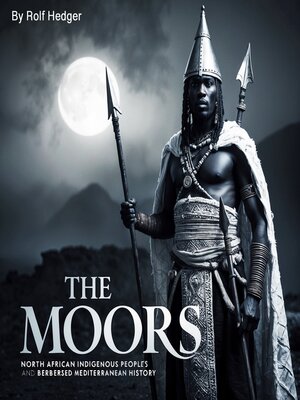The Moors
audiobook (Unabridged) ∣ North African Indigenous Peoples and Berbersed Mediterranean History
By Rolf Hedger

Sign up to save your library
With an OverDrive account, you can save your favorite libraries for at-a-glance information about availability. Find out more about OverDrive accounts.
Find this title in Libby, the library reading app by OverDrive.



Search for a digital library with this title
Title found at these libraries:
| Library Name | Distance |
|---|---|
| Loading... |
This audiobook is narrated by a digital voice.
The story of the Moors is one of the most complex and misunderstood chapters in world history. Often reduced to vague references in Western narratives, the Moors were a diverse group of people, primarily of Berber and Arab descent, who profoundly shaped the cultural, scientific, and political landscapes of North Africa and the Mediterranean. While their name is often associated with the Islamic conquest of the Iberian Peninsula, the Moors' legacy reaches far beyond that singular event, stretching deep into antiquity and resonating into the modern era.
Before the term "Moor" came into widespread use, the indigenous Berbers of North Africa had already established sophisticated societies, with their own languages, customs, and religious beliefs. Their interactions with neighboring civilizations like the Carthaginians and Romans were not merely passive; they were dynamic contributors to trade, military resistance, and cultural exchange. The arrival of Islam in the 7th century further transformed the region, as many Berbers embraced the new faith and played a pivotal role in its spread across the Maghreb and into Europe. It was through this synthesis of Berber heritage and Islamic identity that the Moors, as a historical entity, began to emerge.
Geographically, the Moorish world spanned from the rugged Atlas Mountains to the heart of Spain, from the Mediterranean coastlines to the Sahara Desert. This vast expanse allowed for a rich interchange of ideas, goods, and peoples. The Moors brought advanced knowledge of medicine, astronomy, mathematics, and architecture to medieval Europe—at a time when much of the continent languished in the so-called Dark Ages. Cities such as Córdoba and Granada became beacons of learning and tolerance, attracting scholars, poets, and artisans from around the known world.







